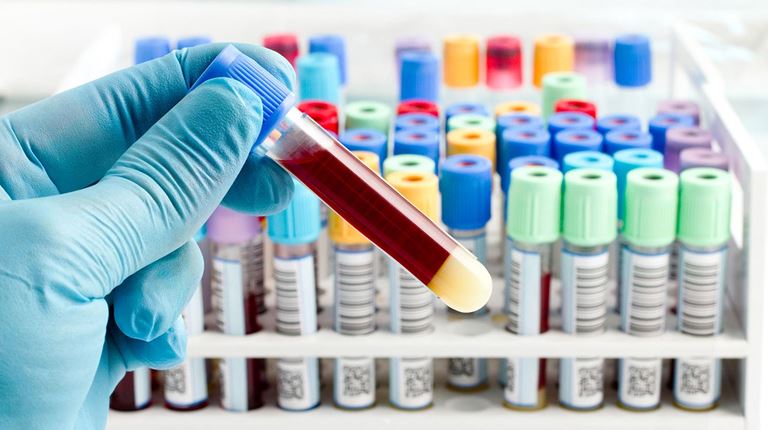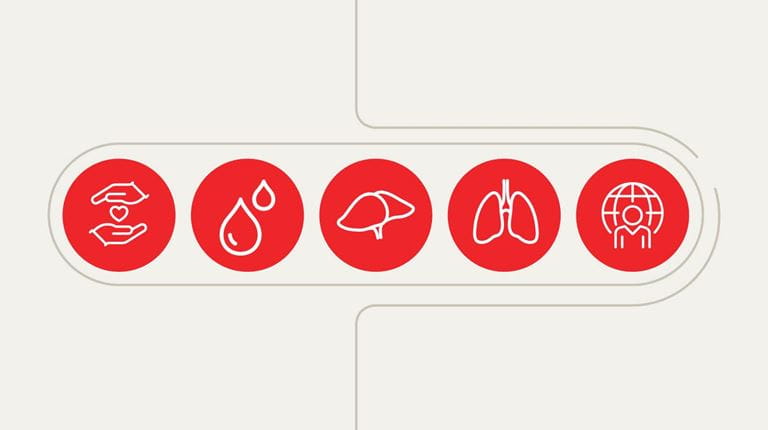The Alpha-1 Foundation is committed to finding a cure for Alpha 1 Antitrypsin Deficiency and to improving the lives of people affected by Alpha 1 worldwide.

Alpha 1 Antitrypsin Deficiency
Pictured: Alpha 1 Patient Dee
What is Alpha 1 Antitrypsin Deficiency?
Alpha 1 is the common name for a genetic condition called Alpha 1 Antitrypsin Deficiency. If a person has Alpha 1, the body is unable to produce a protein known as Alpha 1 Antitrypsin, or AAT for short. This protein plays an important role in protecting the lungs from damage due to excessive inflammation. Without this protein present in the blood, the lungs may weaken over time and place the person at a higher risk for developing serious diseases, such as early-onset emphysema often misdiagnosed as chronic obstructive pulmonary disease (COPD). An abnormal amount of AAT in the liver can also cause liver disease. In some rare cases, AAT can also cause a skin disease called panniculitis, which results in painful, red nodules on the skin. The effect AAT deficiency has on a person’s lifespan can depend on several factors, including how quickly a person is diagnosed, how quickly the condition is progressing, and the extent organs are damaged at the time of diagnosis.
Alpha 1 occurs when a patient has two copies of a mutated SERPINA1 gene, one from each parent. This is the gene which controls AAT protein production. If a person has just one copy of the mutated gene, they are considered a carrier of AAT deficiency and may pass the gene on to a child and can have an elevated risk of developing lung disease.
Symptoms of Alpha 1 Antitrypsin Deficiency
Common symptoms of AAT deficiency related lung disease include: wheezing, shortness of breath, fatigue, frequent colds and cases of the flu, and chronic cough with phlegm. Since AAT deficiency can affect the liver, symptoms may also include jaundice, swelling in the legs or abdomen, and vomiting blood.
Treatment for Alpha 1 Antitrypsin Deficiency
Currently there is no cure for Alpha 1 Antitrypsin Deficiency. However, healthcare practitioners may advise treatment options for lung emphysema to help people lead full lives, such as medication, augmentation therapy, pulmonary rehabilitation, and oxygen therapy. A lung or liver transplant may be an option if those organs have been severely damaged by disease. People may also be advised to take other steps to help their condition, such as quitting smoking and avoiding environmental dust.
-
1 in 1,500 - 3,500
incidence of severe Alpha 1 in people of European descent
-
20 - 40 yrs. old
typical occurrence of first signs and symptoms
-
116 million
estimated carriers of abnormal Alpha 1 genes worldwide

How is Alpha 1 Diagnosed?
Alpha 1 can only be diagnosed by a blood test. If you have a family history of Alpha 1, COPD, emphysema, irreversible asthma, unexplained liver disease, or a skin disorder called necrotizing panniculitis, you should be tested. Alpha 1 is a progressive disease, which means if it is left undiagnosed and untreated, it can get worse and may do more harm to your lungs and body over time.

Alpha 1 Fast Facts
Check out this infographic for five key messages from the Alpha-1 Foundation, including important info about how easy it is to get tested.
See Infographic
Tips for Those Newly Diagnosed with Alpha 1
Feelings of isolation can be common among people diagnosed with a rare disease. But Dee Kroecker, who is living with the rare genetic condition Alpha 1 Antitrypsin Deficiency, wants newly diagnosed patients to know that they are not alone.
Watch Dee's Tips
How Alpha 1 Antitrypsin Works - The Liver/Lung Connection
Alpha 1 Antitrypsin (AAT) is a protein made in your liver. Its main function is to protect your lungs against attack by an enzyme called neutrophil elastase which is usually involved in the inflammation caused by infection and inhaled irritants such as tobacco smoke. With respect to AATD, a low level of AAT in the blood occurs because the AAT is abnormal and cannot be released from the liver at the normal rate. This leads to an accumulation of abnormal AAT in the liver that can cause liver disease and a decrease of AAT in the blood that can lead to lung disease.


